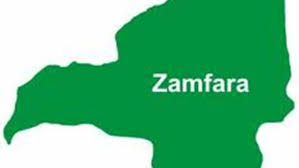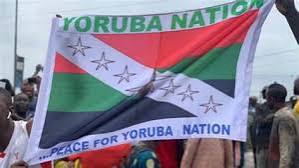When the executive arm of the government sent the 2024 budget proposal to the National Assembly, it was N27.5 trillion, but by the time it was returned to the Presidency from the legislature it had become N28.7 trillion. Signing the Appropriation Bill into law by President Bola Ahmed Tinubu has thrown up many questions; BENJAMIN UMUTEME reports.
When President Bola Ahmed Tinubu presented the 2024 budget estimates to the National Assembly on November 29, it was N27.5 trillion. After the legislative process by both houses of the National Assembly, it had been increased to N28.7 trillion. Even though President Bola Ahmed Tinubu signed the Appropriation Bill into law, Analysts have questioned the rationale for the yearly ritual of upward adjustment of the budget by the National Assembly.
Out of the total sum of N28.7 trillion, N1.74 trillion is for statutory transfers, N8.27 trillion is for debt service, and N8.76 trillion is for recurrent (non-debt) expenditure while the sum of N9.99 trillion is for contribution to the development fund for capital expenditure for the year ending December 31, 2024.
On December 30, 2023, the Senate passed the 2024 appropriation bill of N28.77 trillion, after considering and approving the report of the Joint Committee on Appropriation of the House of Representatives and Senate.
Nigerians are of the belief that it’s part of the legislature’s habit of lining their pockets with state funding hiding under various guises.
While the citizens lament the action of the legislators, they have come out to tell Nigerians why they jerked up the amount earlier proposed by the executive. They said their action was in the national interest.
Inflation fears, GOEs’ revenues
Addressing journalists, the chairman, House of Representatives Committee on Appropriation, Abubakar Bichi, said N1.2 trillion addition was borne out of the belief that the revenue prospects by government-owned enterprises (GOEs) would be realised added to inflation challenges that continue to confront Nigerians.
He said, “We have inflation and exchange rate for the dollar, the executive proposed N750 to the dollar, but after we studied carefully, we looked at it and we knew it was unrealistic.
“So, we increased it to N800. And also we had a meeting with government-owned Enterprises and we believe that their submissions are not enough. They have agreed to increase their revenue to N700 billion. That was how we were able to get that N1.2 trillion, which we applied to capital.
“This is the first time the capital is bigger than recurrent. We appropriated about N850 billion to education. We gave them a lot of money. I believe this budget is brilliant and Nigerians will see a lot of impacts.”
Recurring decimal
Financial analyst Aliyu Ilias told Blueprint Weekend adjusting budget has become a recurring decimal for the National Assembly.
In the signed 2024 budget, the National Assembly raised its 2024 budgetary allocation by 74.23 per cent to N344.85 billion.
This will be the highest-ever budgetary allocation to the National Assembly whose initial allocation in the 2024 budget proposal was N197.93 billion. This comes at a time when Nigerians are lamenting the high cost of living in the country.
Ilias said rather than wait for President Tinubu to present the budget to them, they would have inserted what they want to do into their own budget.
He said,” In as much as it is within their constitutional right to interrogate the budget, this one they did is not good enough, and they are not sensitive enough. Perhaps, they would have put this into the National Assembly Commission budget, after the President has brought it they want to adjust. It has become a recurring decimal for them to adjust the budget. So for me, it’s not bad for them to increase, the matter in which they increase and what they increase for is the challenge.”
Conduit pipe
Political economist Adefolarin Olamilekan told this reporter that the yearly adjustment of the budget by the National Assembly has become a means of siphoning public funds.
Adefolarin said there is nothing serious enough to justify the increase by the National assembly saying previous events have shown that additional funds of this nature are meant to satisfy their interest.
“Unfortunately, the action of the legislature in increasing the budget has now become a ritual that is becoming embarrassing. That the executive accommodates it is just to sustain the relationship between both arms in the scheme of our national political, economic and governance space.
“This is not the first time and l doubt if it would be the last; going by the audacious attitude of the legislature overtime to successfully implant all manner of frivolous capital projects expenditure to justify the increases. However, this method of adding more funds, as well as subtracting in the name of moving one or two capital expenditure projects has proved to be a conduit for white elephant projects to siphon public funds that cannot be accounted for.
“This has exposed us to poor management of the national budget, when the contribution of the legislature is increasing the budget expenditure without recourse to where funding is coming. And we must remind them that their excuse this time around citing inflation and promises by government owned enterprises to improve on their revenue is not tenable enough,” he said.
Monitoring borrowed funds
Another question playing on the lips of Nigerians has to do with borrowing. On this issue, Ilias said it has to do more with what the borrowed funds are being used for rather than the borrowing itself.
“There is no way a country would not borrow. If you look at the last budget, the deficit was 13 trillion, this deficit is 9trillion and they are going to borrow about N7 trillion. It’s not all that bad. The only thing we need to do is to monitor where they are going to spend more in, and how they spend it. Nigeria cannot stop borrowing at this point in time because we need to do more in capital expenditure so as to have more infrastructures. “And if you also look at the budget pattern, health and education have more allocation, if this is what we have been doing, we would have moved beyond where we are at the moment,” he told this reporter.
Budget still tied to borrowing
Adefolarin, also a development researcher, noted that the 2024 budget is still tied to a borrowing plan.
He said the biggest challenge to full implementation of the budget is the country’s debt profile.
“And this situation has been with us for a long time, going by the amount we prepare to service debt incurred and the shortfall that was recorded in our revenue target.
“Regrettably, the situation has turned out budgetary process and implementations into mere yearly ritual that is not benefiting the economy as expected.
“Critical interrogation of the entire 2024 budget has shown that it is still tied to borrowing, even though the government has been clever enough to see how fiscal discipline through tax revenue and proceeds from privatisation add up. While the effort of the government in this regard is appreciated, on the other hand, a multitude of challenges littering the local business environment resulting from the dysfunctional and complex structural deficit may become the stumbling block to the idea.
“One can only pray the Tinubu government marches word with action because successive government in the past also mouthed policy redirection towards tax revenue as measure to reduce our national budget sustainable on borrowing, but failed to align with the fact that, a striving and thriving environment is needed to boost higher tax revenue,” he said.
Solution
Going forward, the economist said there is a need to redraw the law governing the budgetary process.
He said, “This is in the sense that limits on how much the legislature can add or subtract budgetary funding provisions. “This is needed because the legislature needs to focus on their real job, which is oversight, not increasing budget allocation.
“The government needs to explore other opportunities that would help the budget to survive away from borrowing. This we believe can happen through government owner enterprises focusing on their revenue drive and being more accountable.
“Lastly, the value of national budget is in it full implementations, that is the capital expenditure that is very much a life wire to the economy, while we welcome the President Tinubu direct to MDAs to submit monthly budget performance report we equally advise the government to ensure timely releases of funds of which MDAs must priorities capital project that would impact on economy benefit to all Nigerians.”




